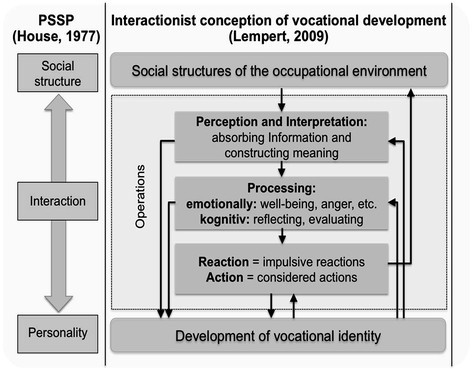Vocational counseling.
What does vocational mean? Of or relating to a vocation or vocations. (adjective) Vocational counseling.


Vocational students learning to operate a lathe.
- Vocational training refers to instructional programs or courses that focus on the skills required for a particular job function or trade. In vocational training, education prepares students for specific careers, disregarding traditional, unrelated academic subjects.
- Of or relating to a vocation or vocations 2. (Education) of or relating to applied educational courses concerned with skills needed for an occupation, trade, or profession: vocational training.
Vocational Meaning Urdu


Skills needed to get a job are examples of vocational skills.
Classes tailored at teaching specific work-skills are examples of vocational classes.

Origin of vocational
Vocational education offers an alternative to traditional academic subjects, like the ones many young people take at A-level or degree level.
Vocational Meaning In English
Vocational education is education that prepares students for work in a specific trade, a craft, as a technician, or in professional vocations such as engineering, accountancy, nursing, medicine, architecture, or law. Craft vocations – such as jewellery making, or metalwork such as those training to become silversmiths – are usually based on manual or practical activities and are traditionally non-academic, but related to a specific trade or occupation. Vocational education is sometimes referred to as career education or technical education.
Vocational education can take place at the secondary, post-secondary, further education / FE, and higher education level; and often is part of apprenticeship programmes. At the post-secondary level, vocational education is often provided by highly specialised trade, technical schools, community colleges, colleges of further education UK, universities, Institutes of technology / polytechnic institutes.
Vocational Meaning In Arabic
Until recently, almost all vocational education took place in the classroom, or on the job site, with students learning trade skills and trade theory from accredited professors or established professionals.
In 2017, a new T-level system was announced, which overhauls how technical and vocational education is taught and administered in the UK. The T-levels aim to put these courses on an equal footing with academic work (A-levels, for example) and improve Britain’s levels of productivity, which currently lag behind the United States and Germany.
The plans announced in the 2017 budget aimed to increase the number of hours students train by 50% and replace the current 13,000 qualifications with just 15. Extra funding of £500m a year will pay for the new system, according to the government. Students will also do a three-month work placement as part of their course. The changes are expected to come into effect from 2019, with additional funding of over £500m per year once the courses are up and running,